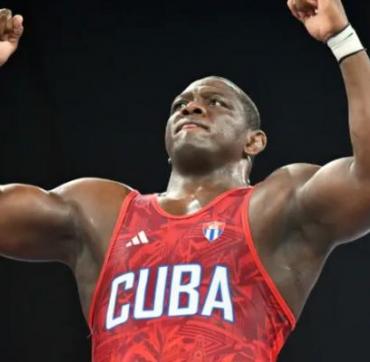Author examines roots of American racism

K-12 education system has played a large role
As Blacks were migrating from the harsh labor conditions of southern cotton fields to what they thought would be a Utopian deliverance to anywhere else, many did not know the sickness of white supremacy had already spread the world over, as if it were an airborne contagion.
As alluded to in his book “Teaching White Supremacy,” author Donald Yacavone, lays out a stark roadmap into the complex phenomenon that has shaped world governments, their economies, educational standards and cultures.
As other cultures pass down traditions like celebrations and religions, so too is whiteness, as a domineering aspect of existence, passed down in the teachings of white supremacy. No matter the economic positioning, nearly every child in America, as well as in other nations with a history of racism, have passed through a form of this indoctrination.
Yacavone is the author of nine books, including two co-authored with African American scholar Henry Louis Gates Jr., who called “Teaching White Supremacy” “The most profoundly original cultural history in recent memory.”
The contemporary headwind of the anti-Black literature movement in our classrooms further highlights the need for continued dominance by the white racist culture over K-12 education, the main historic disseminator of white supremacy.
MSR: Was this book meant for a specific audience or meant to impact in different ways a white or Black audience?
Yacavone: Most of the work I’ve done is for an academic audience. Now, when I went to work for Henry Louis Gates Jr., because of who he is and who he writes for, and I’ve written a couple of books with him, I became accustomed to writing for a different audience.
I had hoped to address as many Americans as possible, Black and white, because each analyzes problems from a completely different perspective, and I wanted to craft a book that people from diverse backgrounds would understand. I think this book is essential for everyone, regardless of background.
In fact, I started this book as an accident. I was writing a different book. I had gotten some small grants to do a different book on the legacy of the anti-slavery movement and the way it helped form the modern Civil Rights Movement. I had gone through some historical records and spent the better part of a summer at a Harvard library.
The first book I pulled out of many was by Noah Webster, the famous author of the “American Dictionary.” And I was dumbfounded by what I read. Like most of his colleagues who wrote history textbooks before the Civil War, he followed a model, which was to focus on the history of exploration, colonization, the American Revolution, the forming of the Constitution, and each successive presidential administration.
That’s all there were—there was no such thing as social history. There was no room in that model for the kinds of history that we are now interested in. It was very formal, very direct, and relentless.
MSR: Would you say the attack on teaching Black History is simply a continuation of white supremacy in our classrooms?
Yacavone: Absolutely. Because what these textbooks revealed, what they taught students, was the essential dominance and supremacy of people of European descent and the inferiority of everyone else. It’s essential to them to continue this model because this form of teaching is where true Americanism is defined.
MSR: When would you say that white supremacy overtook the nation’s education system?
Yacavone: Right from the very beginning! It has never been anything else in this country. You didn’t see a change in textbooks and approach to teaching, relating to the history of the United States, until the mid to late 1960s.
MSR: So indoctrination has been meant for white and Black students?
Yacavone: Absolutely! Naturally, it was meant to empower the psyche of white students while diminishing that of nonwhite students. Both affected, but in opposite fashion.
MSR: Would you say that this “whiteness” is what Donald Trump has tapped into?
Yacavone: You are right on. And the importance of this book to me is that it explains the psyche drain that we are currently facing as a country, and Trump is one of the greatest manifestations of this patriotic whiteness.
MSR: How serious a problem is white supremacy?
Vacavone: It can’t get more serious than white supremacy. It competes with the American emphasis on democracy, and of course so much of American democracy is hypocrisy. Thomas Jefferson, for example—no one is more closely associated with the promotion of democracy, yet he was a slave owner.
MSR: Did our educational system prepare us for a nonwhite president?
Vacavone: Once Barack Obama was elected president, twice no less, it put a cataclysmic fear into about 40 percent of the American public who could not understand how that was possible, because it flew in the face of everything they knew and everything they had been taught, and it was just intolerable.
MSR: Is there a possibility that we will one day eradicate racism?
Vacavone: I made a presentation at an event involving Professor Gates in which he asked a similar question: How does this end, given what you’ve written and discovered? What I said was, “As long as we’re in this iron cage of race, we’ll never escape it. As long as we define people by the fictional creation of races, we can never escape its contours.”
MSR: What’s behind Governor Ron DeSantis attacking the textbooks in Florida?
Vacavone: DeSantis is still quoting from textbooks that date back to the 1950s that argued that slavery was a benefit in that slaves were well treated and learned trades. This is not just ridiculous but obscene! This position is just to reaffirm the teachings of white dominance through textbooks.
MSR: Where does Critical Race Theory fit into all of this?
Vacavone: Anything that is the least bit supportive of African Americans is dismissed and denigrated as a troublemaking theology and aimed at harming whites. They attack anything that is African American history, which is American history.
MSR: Would you agree that a part of white supremacy is to oppose reparations?
Vacavone: Reparations are dismissed by whites as something to make them feel guilty. And you can bet every penny you’ve ever had that if the situation was reversed with this being a dominant Black culture and the ancestors of whites worked for free for hundreds of years, rest assured whites would be demanding everything and more.
MSR: What new projects are you working on?
Vacavone: One in particular, involves a collection of 16 essays on African Americans. It’s a fascinating collection that puts emphasis on the ubiquitousness of African Americans in every aspect of the culture. And is designed to show how much African American culture is truly American culture. African Americans are not something you add on to the true story of America—it is America!














Add new comment